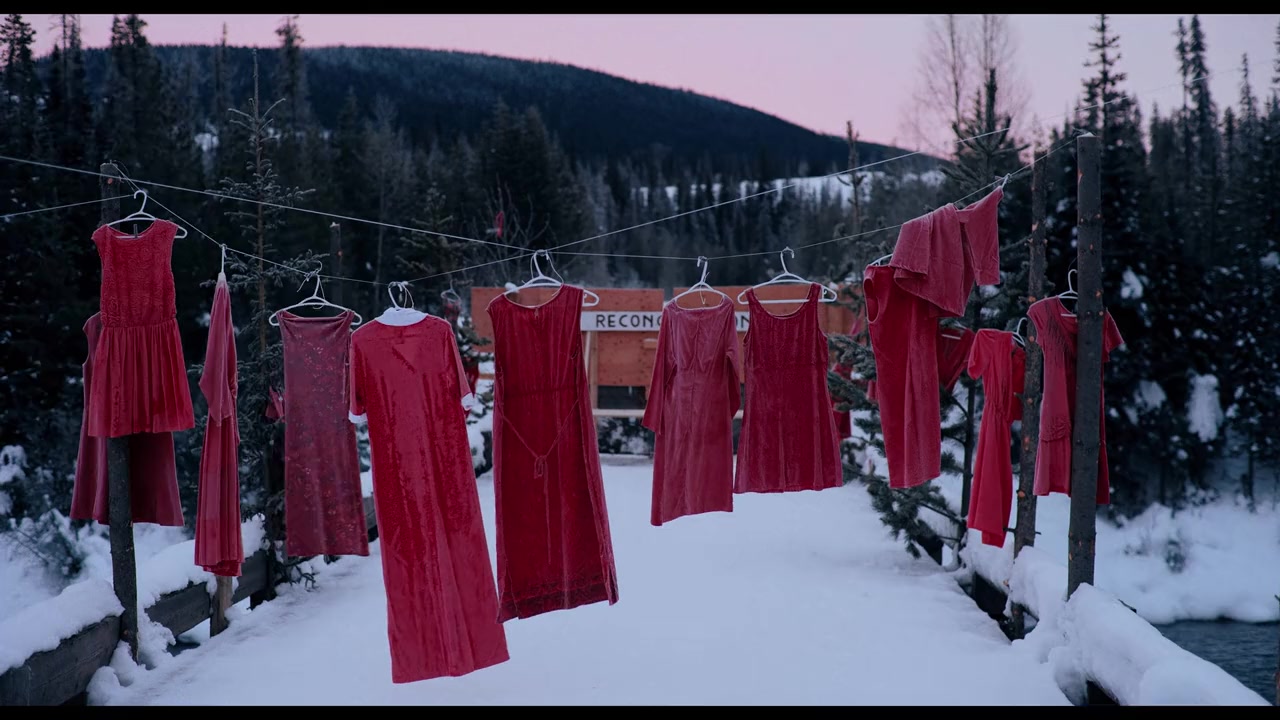Apparently Canadian original sins are similar to the US’s. Though the Canadians don’t have as well known genocidal history towards its Native American population as the United States, that history is still troubling nonetheless, and continues into present day. Yintah at its best is like watching that history book in real time, and the Netflix presence hopefully turns this tale into something every North American high schooler gets a chance to watch and see the real life examples of institutional racism. Happy Thanksgiving everyone!
Yintah, to the Wetʼsuwetʼen First Nation in Canada, means the land they reside upon and live in harmony with. Since the late 2010’s, that land has been threatened by the oil and gas industry, and Justin Trudeau’s big plan to create the TransCanada pipeline across the country. We follow Molly Wickham and Freda Huson, among several other tribe members, in their attempts to stop/delay this development across their land, fighting a war against two giant enemies: the combined forces of government and big business.
I remember reading in the history books about how “treaties” would be signed with Native American tribes, giving legal means for settlers to essentially push Native Americans off their land so they don’t have to feel bad about it. And by the time they pushed far enough/the Native Americans got smart to draft their own treaties against the government, a more merciless non Native government enforcement agency would ignore First Nations sovereignty and just take over the land with force and write them out of historical record as best they could. Yintah shows in horrifying sinister detail how the modern versions of these practices look. All that Canadian “sweetness” looks appalling here, as the “not into conflict” police/workers fall back on “I’m following orders” lines to do their jobs. We see every trick in the book used: the companies try to come peacefully but aren’t let into the territories, so they legally get the government to enforce a “security issue” to allow them in. When that happens, the company starts work even when they’re saying they won’t, which takes years in court for the First Nations to stop. Then more legal action and other public outcries forces the police to come in covert ways and tear down the Native American surveillance they have on the area, which then brings the companies back in. The more Yintah goes on, the more icky, and worse, helpless you feel for Molly, Freda, and the Wetʼsuwetʼen people who just want to simply live their lives in peace, but Canada’s money won’t let them.
But somehow, we don’t always feel hopeless, thanks to the heroism on display here. The counter measures Freda and Molly employ are inspired, using all sorts of tactics MLK would have used during the Civil Rights Era. The Wetʼsuwetʼens document and phone video everything, making it easy to get their message out honestly to people, especially other First Nations. They rally, fundraise, donate, hold press conferences, and volunteer all over the territory, getting more and more people into the fight. They close roads to delay, causing severe money losses and stock drops for the various companies. Even when threatened with jail time, Freda, Molly and the brave others put their lives on the line, really caring about the long term future of their people, land, and their children. Yintah feels more like a war film than a movie at times, as we see all these tactics deployed and counter deployed in a thrilling, suspenseful way, very similarly to the incredible 20 Days in Mariupol last year.
Those who don’t learn from history are doomed to repeat it. That is Yintah’s lasting message to the pipeline industry and Canadian government. You’re committing more sins for the sake of a few dollars, failing to live up to the promises and doomed to end up in the history books like the people you say are bad for what they did to the First Nations. After watching this doc, Justin Trudeau’s adorable face should become forever warped in your brain, as it has become in mine.

